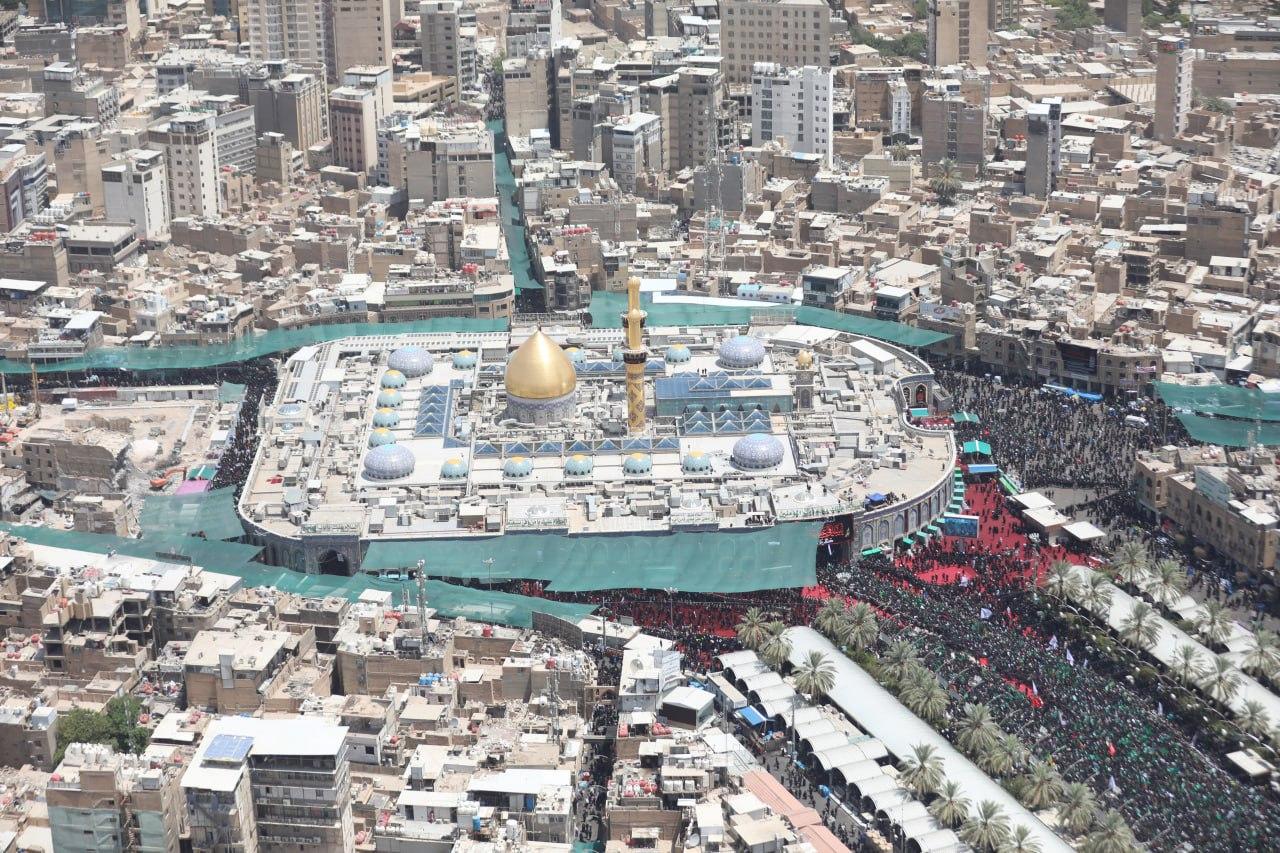The sacrifice for truth and justice
This year, millions will gather in the city of Karbala to mark Ashura, the tenth day of the Islamic month of Muharram. It's a day that Shiite Muslims see as the occasion to commemorate and mourn the death of Imam Hussein, who was brutally beheaded centuries ago, along with dozens of his family and friends.
Then, 40 days later, as many as 30 million people are expected to return to Karbala and the shrines for the Arbaeen pilgrimage on foot.
These are record numbers. No other annual pilgrimage in the world attracts this many people
So, why are so many people make this journey?
Known to many Muslims simply as Hussein ibn Ali, he is remembered as the grandson of the Prophet Muhammad.
But to the Shiite Muslims, Imam Hussein is also revered as a holy figure and one of 12 appointed imams from the family of the Prophet Muhammad.
Both major sects believe he was martyred in the battle of Karbala in 680 CE on the day of Ashura, but there are differing views about how this should be remembered.
And, unlike many Sunni Muslims, Shiites place special religious significance on mourning Imam Hussein and his family's deaths.
Shiites congregate yearly at their graves, which have shrines built around them covered by golden domes and adorned with lights and lanterns.
Beneath the domes, the streets are lined with black, red and gold flags, under which millions of devout followers gather to retell the tragedy of how the slain saint was beheaded.
They consider his sacrifice a symbol of justice and truth, and a protest against tyranny and oppression.
Shrouded in black, with tears running down their face, many sing sorrowful chants, while retelling the story.
Zainab says the whole experience at the shrines feels otherworldly.
"There's a Hadith [saying of the Prophet Muhammad] about the land [Karbala] itself, saying it's like a part of heaven on Earth."
"You really do feel that when you are there. From the scent, the people, the way people carry themselves, everybody essentially in their own zone."
According to Islamic history, Imam Hussein and 72 members of his family and companions were outnumbered in a battle against an army of soldiers lead by Umar ibn Sa'ad. It was their attempt to preserve the true teachings of Islam, Sheikh Al-Ameli explains.
The Shiite view is that Imam Hussein was the rightful leader of the time and his position was usurped
"We have in Islam a man that was oppressed 1,384 years ago and our resistance to oppression has made us, from that day, [to] create these gatherings to say, 'We say no to oppression'."
His martyrdom is seen as a message to humanity to stand up to injustice.
"We'll have these 'mourning ceremonies' until the end of time to send this message and we want the world to know that [oppression] is something that we don't accept
Putting things in perspective

Many pilgrims often cry to express their sadness when the story is retold as a way of empathising, also a Shiite scholar.
"One of the best things about [crying] is that it makes all your problems irrelevant. It gives you empathy for what happened [during the battle]."
"It really relieves you."
"If I'm having a bad day, I'll put on a majlis [Islamic lecture], I'll cry, and I'll forget my issues."
During congregations around the world, Shiite Muslims lament Imam Hussein's death through the recitation of poetry and latum, the rhythmic beating of the chest. This tradition was first started by Imam Hussein's sister Zainab, after she heard of the death of her brother.
Sheikh Mehdi says Imam Hussein was the embodiment of goodness and everything that was right.
And he says every character who played a role in the tragedy "personified a certain role."
"[Imam Hussein's sister] Sayidna Zainab for example, personified strength in calamity, leadership, eloquence in speech, and standing in the face of the tyrant while keeping her belief in God,"

Ashura is a holy day for Muslims all over the world, observed on the 9th and 10th day of Muharram, according to the Islamic calendar. This year, Ashura begins on July 27. The Shia Muslims see it as the climax of the Remembrance of Muharram and the martyrdom of Husayn ibn Ali (the grandson of the Prophet Muhammad) at the battle of Karbala.
For the Sunnis, Ashura is the day Moses fasted to show his gratitude for the freedom of the Israelites. Today is also a holy day of mourning observed primarily by Shia Muslims. Other Muslim sects spend the day fasting and meditating.


